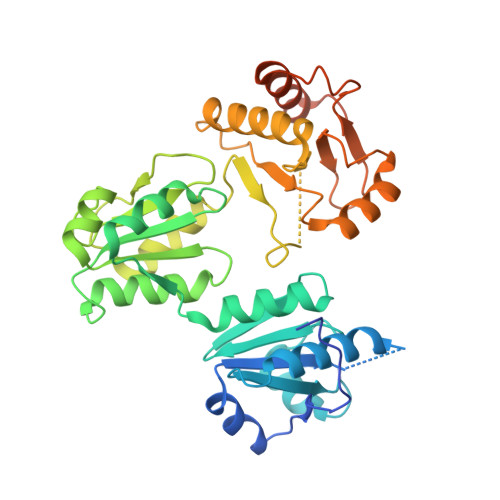The structure of a calsequestrin filament reveals mechanisms of familial arrhythmia.
Titus, E.W., Deiter, F.H., Shi, C., Wojciak, J., Scheinman, M., Jura, N., Deo, R.C.(2020) Nat Struct Mol Biol 27: 1142-1151
- PubMed: 33046906
- DOI: https://doi.org/10.1038/s41594-020-0510-9
- Primary Citation of Related Structures:
6OWV, 6OWW - PubMed Abstract:
Mutations in the calcium-binding protein calsequestrin cause the highly lethal familial arrhythmia catecholaminergic polymorphic ventricular tachycardia (CPVT). In vivo, calsequestrin multimerizes into filaments, but there is not yet an atomic-resolution structure of a calsequestrin filament. We report a crystal structure of a human cardiac calsequestrin filament with supporting mutational analysis and in vitro filamentation assays. We identify and characterize a new disease-associated calsequestrin mutation, S173I, that is located at the filament-forming interface, and further show that a previously reported dominant disease mutation, K180R, maps to the same surface. Both mutations disrupt filamentation, suggesting that disease pathology is due to defects in multimer formation. An ytterbium-derivatized structure pinpoints multiple credible calcium sites at filament-forming interfaces, explaining the atomic basis of calsequestrin filamentation in the presence of calcium. Our study thus provides a unifying molecular mechanism through which dominant-acting calsequestrin mutations provoke lethal arrhythmias.
- Cardiovascular Research Institute, University of California, San Francisco, San Francisco, CA, USA. erron.titus@ucsf.edu.
Organizational Affiliation:


















